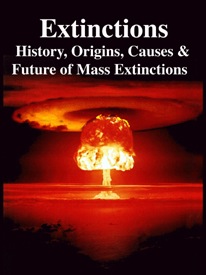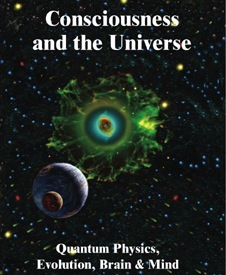|
|
|||||||||||||||
Journal of Cosmology, 2010, Vol 13, 3609-3612. JournalofCosmology.com, December, 2010 B. Schoepp-Cothenet, Ph.D., and W. Nitschke, Ph.D., Bioénergétique et Ingénierie des Protéines, IFR88, CNRS, 13402 Marseille, France
Astrobiology therefore presently is rooted in and depends on very diverse tributary disciplines such as cosmology, nuclear physics, geology and paleogeology, microbiology, ecology, biochemistry and molecular phylogeny, a truly transdisciplinary endeavor. Challenging and stimulating as such transdisciplinary research may be, it also requires a good deal of patience and endurance in understanding the jargons and comprehending the concepts of the other disciplines. All this said, it is obvious that an astrobiologist needs self-critical attitude towards their own discipline as well as a humble approach to the fields outside their core competences. Since at the present stage "results" in astrobiology are in general extrapolations, communications of these results to the scientific community and even more to the public will insist on the speculative nature of these approaches. Now, there is also a dark side to astrobiology. It is a "hot" topic, meaning that its results have far-going societal ramifications and attract substantial media attention. The "societal issues" part privileges astrobiology in the fundraising business, like it does for other topics with a direct impact on society such as medical or alternative energy research. This naturally induces researchers from potentially contributing fields to jump on the astrobiological bandwagon. The astrobiological label thus becomes a means rather than an end to access money and media fame. The recent article by Wolfe-Simon et al. (2010) in Science exemplifies to our minds the above described dilemma. This work reports the isolation of a bacterium which undoubtedly grows under the most adverse conditions. This species manages to increase biomass (although very slowly) in the presence of 40 mM arsenics and under strong starvation of phosphorus (3.1 µM), corresponding to a more than 10,000 fold excess of arsenic (As) over phosphorus (P). In the periodic table, As is positioned directly below P and therefore has chemical properties approaching those of P. It therefore is tempting to assume that this bacterium uses As, typically considered a strong poison, to substitute for phosphorus. This precisely is the claim made in the article by Wolfe-Simon et al (2010). Several of the experimental details in this article have come under heavy attack on scientific websites within hours after its publication and the future will tell which of the data will hold out to scrutiny and which ones won’t. Irrespective of the outcome of the scientific quality control process, we consider that the article itself demonstrates its central claim, i.e. that As might be an alternative to P in life on other planets or even in an independent origin of life on Earth, to be unwarranted. Despite the more than 10,000 fold excess of As over P, the organism contains at best 3 times more As than P (on a molar percentage level) showing that it desperately goes for the phosphorus. If there is not enough P to load all the phosphate containing cellular sites, it has only two choices: die or try to survive using the elements and molecules which are chemically closest to P and phosphate, i.e. As and arsenate. This is what it possibly does. Rather than having found an organism wherein As is an alternative to P, the authors have isolated a bacterium which has adapted (as best as it possibly can) to a very extreme and hostile environment. This result is extremely interesting and important to the field of microbial ecology and metabolism but it would have failed to attract the media attention it actually did after being converted, unduly as we have pointed out above, into an astrobiological finding. The hype raised by this publication is symptomatic of astrobiology’s dilemma in general. We would argue that strong societal impact should spell "Be especially careful". It may be deplorable but it is a fact that "scientific thinking" is not yet deeply rooted in society. By scientific thinking we do not mean using exterior derivatives for determining spacetime curvature but the conscience that there is no absolute truth but only a sequence of theories describing an ever increasing part of observations and that these theories can only be falsified but never verified. This certainly is not how media-communicated scientific results are received by the public audience. When a scientific finding goes over the 8 o’clock news it is taken at face value. If such a finding is subsequently demolished, a natural part of the scientific process and only showing that the system does work properly, the public in general takes it as discrediting the scientific approach in general. We have painfully witnessed this tendency through the last decade’s debate of results on climate change. However, the stakes to society from climate change research are incomparable to those from astrobiology. There is potentially not enough time left to wait for the emergence of a society fully trained in the scientific approach and to our minds climate change researches have on average done a splendid job in finding a compromise between scientific reserve and the duty to wake the public up to major problems ahead. The chant of the media sirens and of copious funding too often lead astrobiology to abandon this reserve and it then contributes in an unnecessary way to the increasing distrust of the public opinion in science. Astrobiology and scientists from the fields feeding into astrobiology need to strictly follow the codex of scientific deontology or else they will do harm to science in general. Or as Captain Kirk might have said: "Beam us down to Earth, Scotty."
Wolfe-Simon, F., Blum, J. S., Kulp, T. R., Gordon, G. W., Hoeft, S. E., Pett-Ridge, J., Stolz, J. F., Webb, S. M., Weber, P. K., Davies, P. C. W., Anbar, A. D. and Oremland, R. S. (2010) A bacterium that can grow by using arsenic instead of phosphorus Science, DOI 10.1126/science.1197258.
|
|
|
|
|
|
|
|
 Colonizing the Red Planet ISBN: 9780982955239 |
 Sir Roger Penrose & Stuart Hameroff ISBN: 9780982955208 |
 The Origins of LIfe ISBN: 9780982955215 |
 Came From Other Planets ISBN: 9780974975597 |
 Panspermia, Life ISBN: 9780982955222 |
 Explaining the Origins of Life ISBN 9780982955291 |












